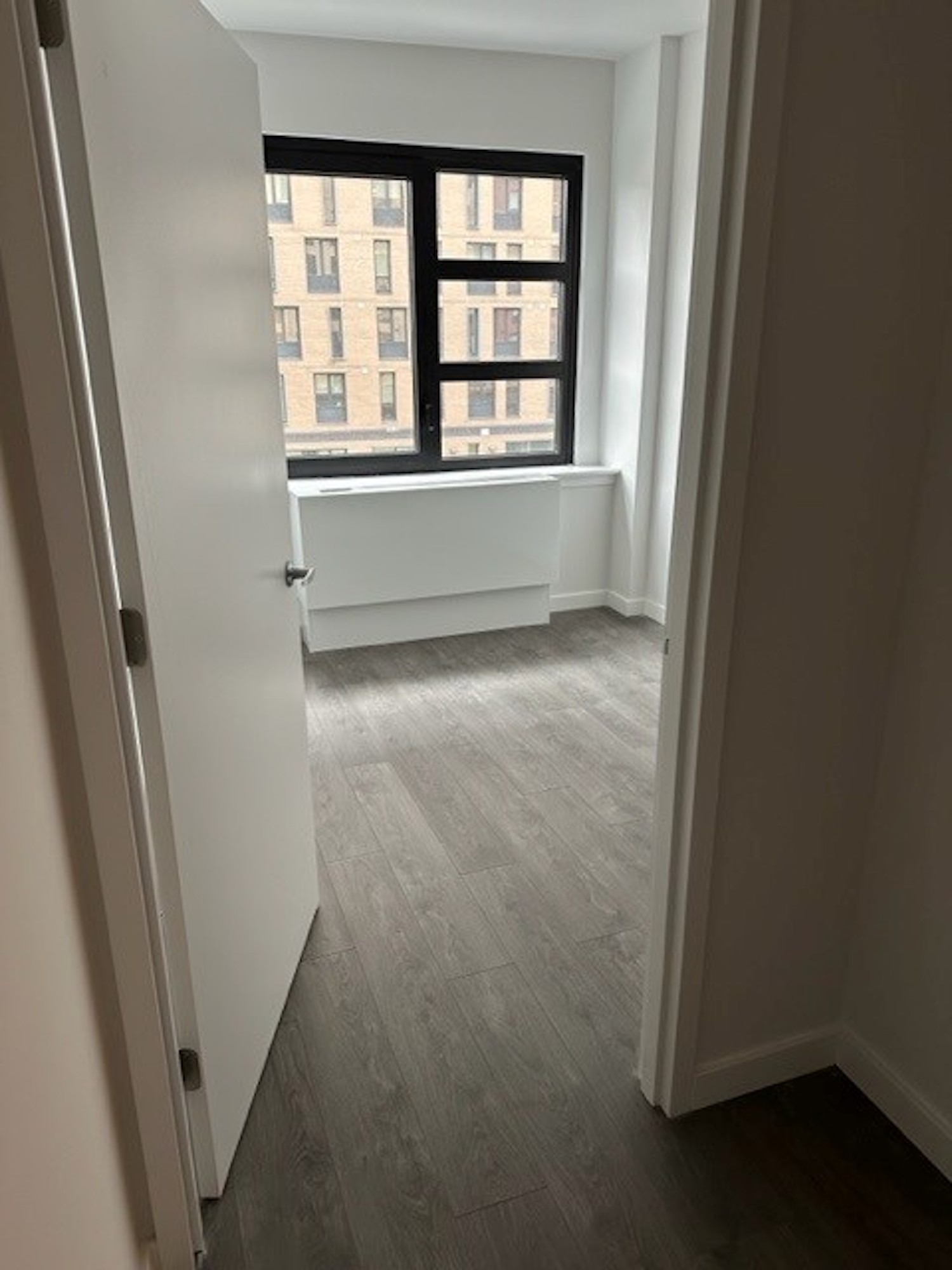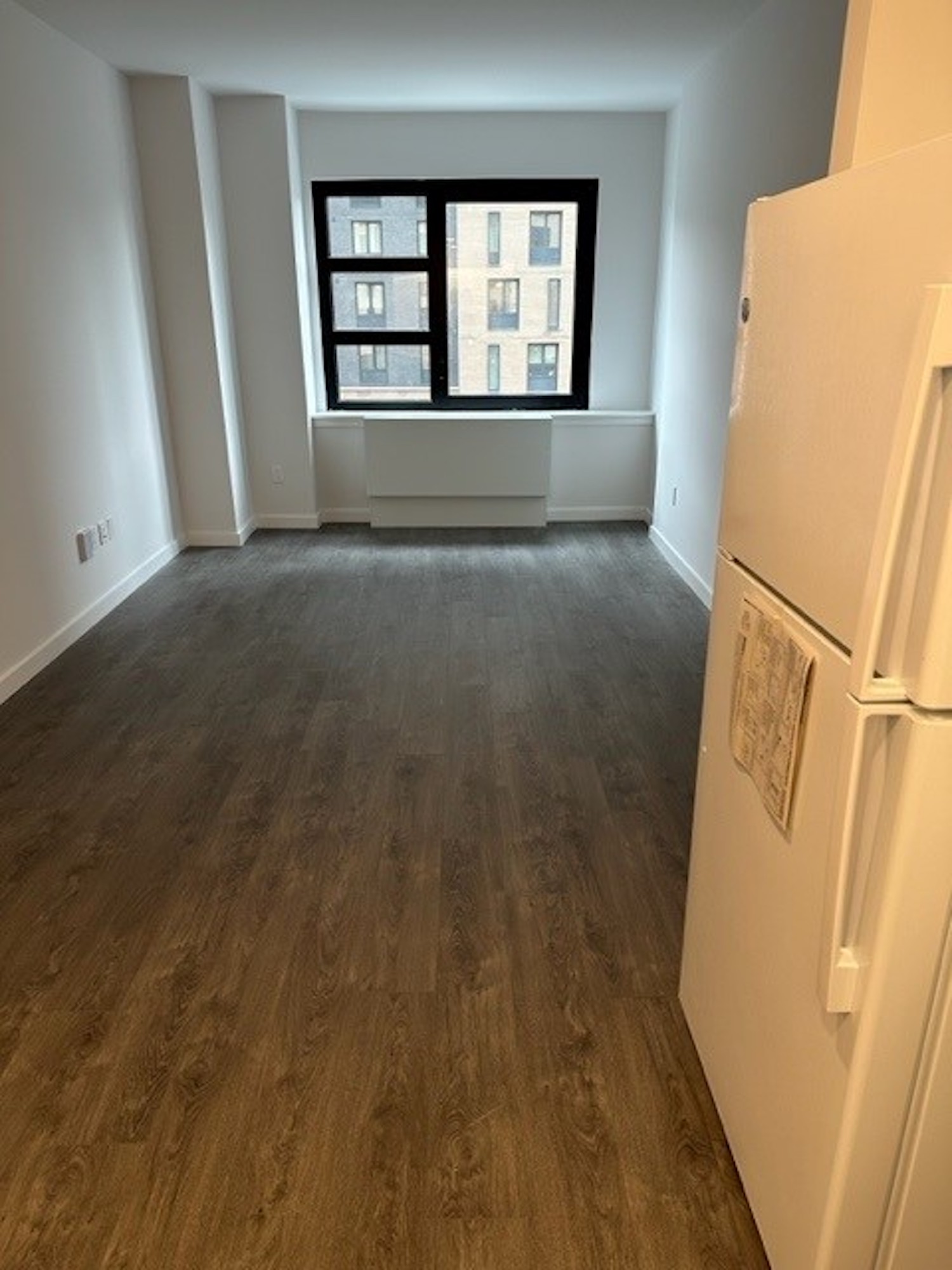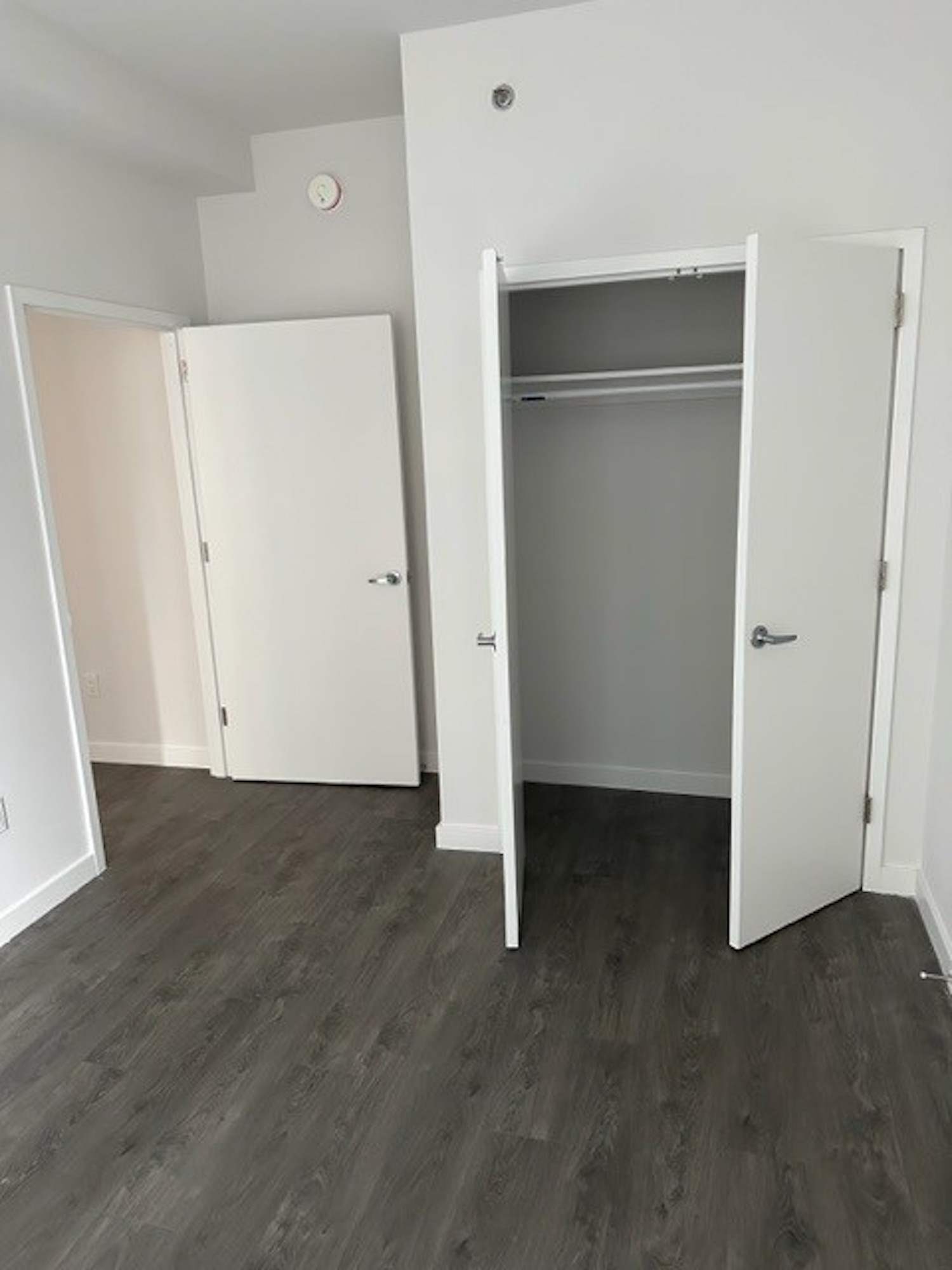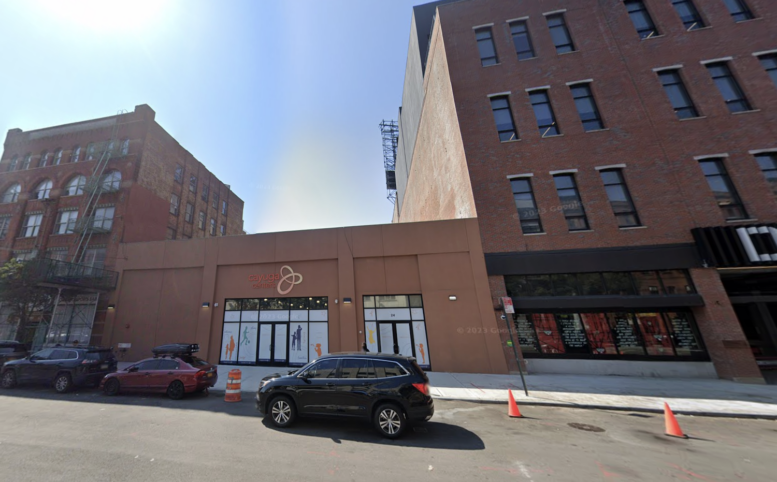
The affordable housing lottery has launched for McClellan Apartments at 1160 River Avenue in Concourse, The Bronx. Designed by Aufgang Architects and developed by Maddd Equities LLC and Alembic Community Development, the structure yields 245 residences. Available on NYC Housing Connect are 198 units for residents at 30 to 100 percent of the area median income (AMI), ranging in eligible income from $18,515 to $175,100.
Amenities include an on-site super, recreation room, shared laundry room, bike storage, library, elevator, and an outdoor deck. Residences come with Caesarstone countertops, white appliances, and free in-unit broadband internet. Tenants are responsible for electricity.
At 30 percent of the AMI, there are eight studios with a monthly rent of $465 for incomes ranging from $18,515 to $33,900; ten one-bedrooms with a monthly rent of $591 for incomes ranging from $23,178 to $38,130; three two-bedrooms with a monthly rent of $700 for incomes ranging from $27,772 to $45,750; and four three-bedrooms with a monthly rent of $800 for incomes ranging from $32,092 to $52,530.
At 50 percent of the AMI, there are 18 studios with a monthly rent of $866 for incomes ranging from $32,263 to $56,500; 31 one-bedrooms with a monthly rent of $1,092 for incomes ranging from $40,355 to $63,550; four two-bedrooms with a monthly rent of $1,301 for incomes ranging from $48,378 to $76,250; and ten three-bedrooms with a monthly rent of $1,494 for incomes ranging from $55,886 to $87,550.
At 70 percent of the AMI, there are 14 studios with a monthly rent of $1,266 for incomes ranging from $45,978 to $79,100; 38 one-bedrooms with a monthly rent of $1,592 for incomes ranging from $57,498 to $88,970; 19 two-bedrooms with a monthly rent of $1,901 for incomes ranging from $68,949 to $106,750; and three three-bedrooms with a monthly rent of $2,188 for incomes ranging from $79,680 to $122,570.
At 100 percent of the AMI, there are five studios with a monthly rent of $1,527 for incomes ranging from $54,926 to $113,000; 14 one-bedrooms with a monthly rent of $1,918 for incomes ranging from $68,675 to $127,100; 10 two-bedrooms with a monthly rent of $2,292 for incomes ranging from $82,355 to $152,500; and seven three-bedrooms with a monthly rent of $2,639 for incomes ranging from $95,143 to $175,100.
Prospective renters must meet income and household size requirements to apply for these apartments. Applications must be postmarked or submitted online no later than February 22, 2024.





